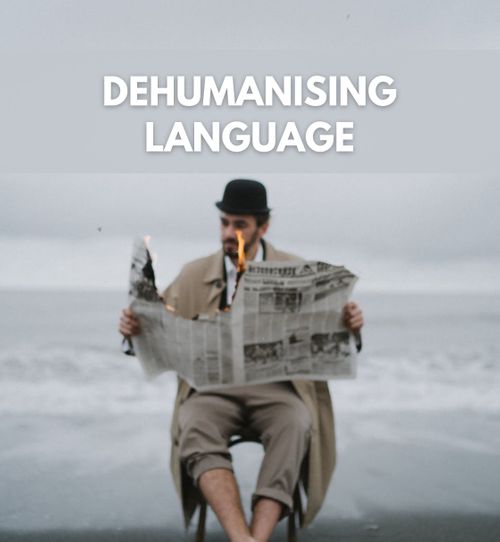What is dehumanising language and why does it matter?
Jul 18, 2021 · 2 mins read
0
Share

Brené Brown is a leading American researcher and storyteller who studies and dissects human connection. She has warned against the ancient power of dehumanisation: its deadly effects on human connection; and its link with all great and little atrocities committed in the world.
Save
Share
Dehumanisation is “the psychological process of demonizing the enemy, making them seem less than human and hence not worthy of humane treatment.” Today we’re in a world where political and ideological discourse, especially online, has become very dehumanising.
Save
Share
Every large-scale atrocity happened after a mass of people were able to successfully dehumanise their enemy enough to stop feeling empathy when hurting them. People who otherwise had moral codes have historically engaged in wars, torture, slavery, etc. for this very reason.
Save
Share
Dehumanising language is the beginning of the dehumanisation process. Our brains are hardwired to attach meaning to what we hear. Words with a degrading emotional undertone, like dog, alien, evil, vermin, idiot, scum, crazy, pig, etc., begin to dehumanise a person in our minds.
Save
Share
Dehumanising is a process. We pick a side and slowly lose trust in the other. We get angrier, confirming the badness of our enemy the more we look, creating a sinister "enemy image." We lose our ability to see them as people and to listen to them or collaborate with them.
Save
Share
Dehumanisation is a solution to conflicting motives. We want to harm a group of people, but it goes against our very deep wiring as a social species to actually hurt, kill, or degrade other humans. “Dehumanisation is a way of subverting those inhibitions.”
Save
Share
Most of us believe that people’s rights should not be violated, but dehumanising creates “moral exclusion.” The enemy is no longer protected by our moral code (“this person deserves my kindness, this person doesn't for xyz reasons”). Moral exclusion is dehumanisation at its core.
Save
Share
We have a natural instinct to defend ourselves from dehumanisation as it is a threat to survival. People don’t always feel unsafe having their feelings hurt or listening to dissenting opinions; but dehumanising language or behaviour always feels threatening (for good reason).
Save
Share
Brené has found that when people feel threatened or dehumanised it becomes more difficult to stay receptive and compassionate to the party doing it. Dehumanising makes it difficult to have constructive discussions or create a harmonious, accountable society. It does the opposite!
Save
Share
Bottom line: We should never tolerate representing any person as less than human or less deserving of our consideration than others, in any discourse. "Moral exclusion” makes creating social harmony more difficult, and is dangerous territory to slip into for society as a whole.
Save
Share
0